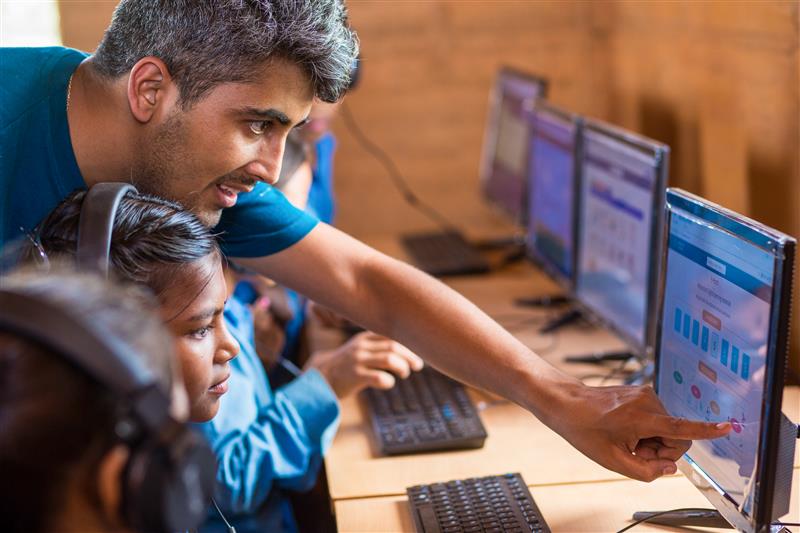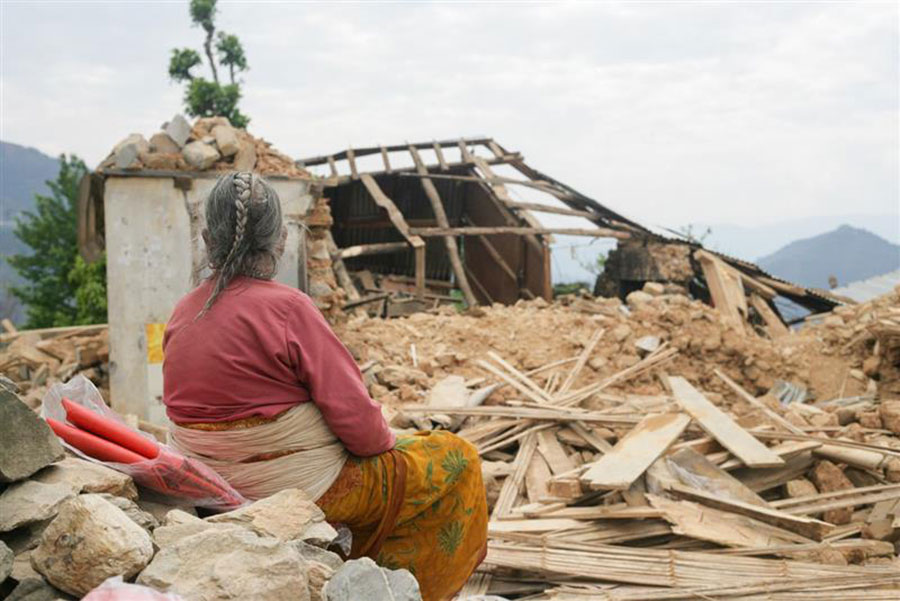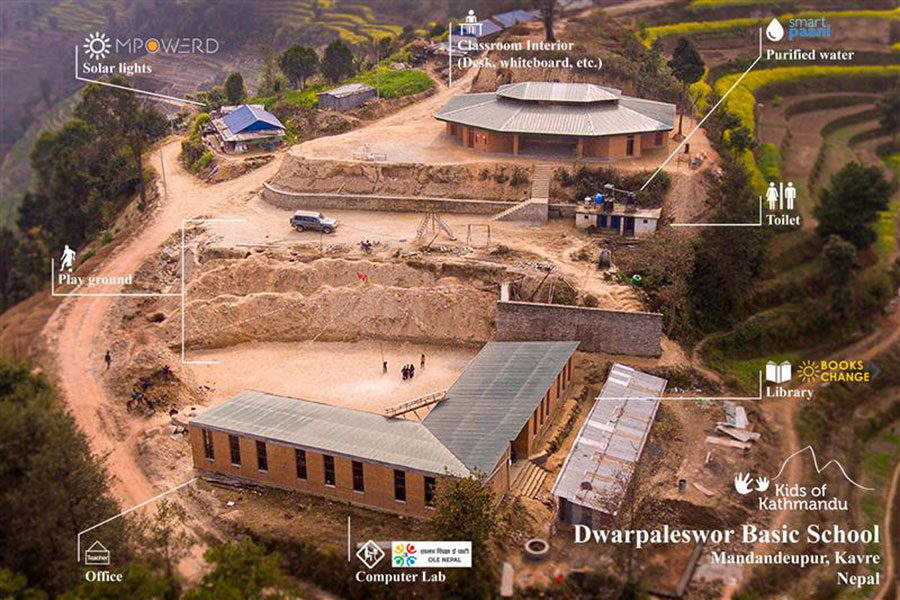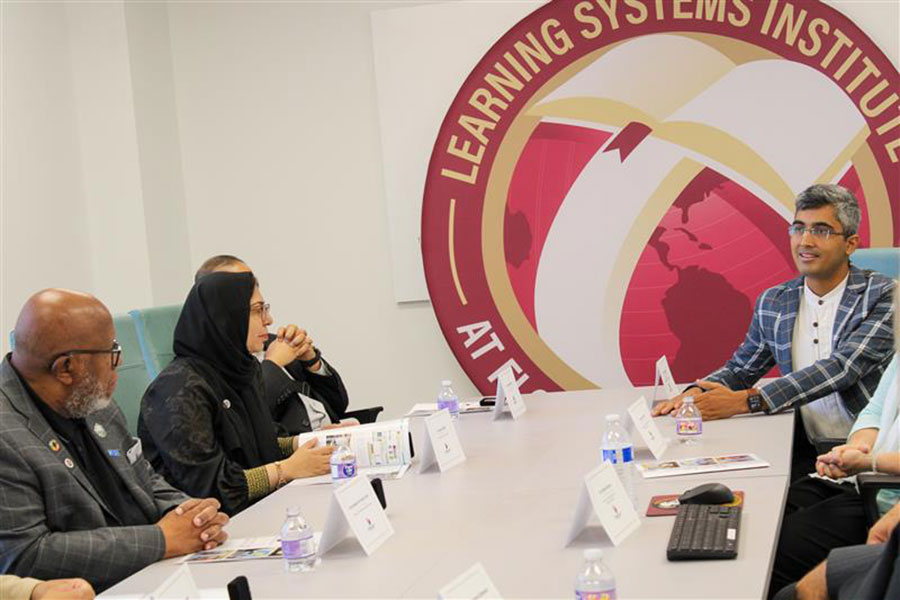
For nearly 15 years, Bhushan Dahal, a doctoral student in the College of Education, Health, and Human Sciences and a graduate assistant in the Learning Systems Institute (LSI) at Florida State University, has played a significant role in education reform in his home country of Nepal.
As a doctoral student in Educational Leadership and Policy Studies, Dahal seeks to expand his influence and contribution to the field of education, and his work at LSI on projects such as the USAID Teacher Excellence Initiative in Egypt and Transforming Teacher Education Activity in Zambia is opening doors at the international level.
“Nothing beats the excitement of working in Nepal, but now, being with LSI has broadened my experience beyond domestic projects to a range of international ones,” he said. “This exposure is invaluable, and I’m learning so much from each opportunity.”
Earlier this semester, Dahal was selected by the University Council for Educational Administration (UCEA) as a 2024-2026 Jackson Scholar, which will give him the opportunity to engage in formal networking, mentoring and professional development opportunities to enhance his pathway to a career in educational leadership.
“As a first-generation international student who loves academia, networking and discovery, being selected as a Jackson Scholar is truly an honor,” Dahal said. “I am excited about the opportunities ahead and look forward to building lasting memories and connections that will shape my journey and contribute to my vision of creating a dignified community.”
Before Dahal arrived at FSU, he was the first official employee at Kids of Kathmandu and later became the organization’s director. Through his work with the nonprofit, 11 schools have been constructed, accommodating 6,000 students and featuring computer labs, libraries, furniture and water purification systems.
“It went from being one person trying to do a few projects to being in a position where I was running an organization,” Dahal said. “It was a complete shift of responsibility.”
Things dramatically changed for Kids of Kathmandu and Dahal in April 2015 when Nepal was devastated by a catastrophic 7.8 earthquake, the worst natural disaster in the country in several decades. Nearly 9,000 people lost their lives, and another 22,000 suffered injuries.
Thanks to much of Dahal’s work in Nepal, Kids of Kathmandu was already a well-established and trusted organization. That credibility led to an influx of donations from around the world to aid in the country’s recovery. Dahal and his team immediately began developing strategies to maximize this new stream of resources from international agencies, local and national governments, and other stakeholders.
“The two good things that I would say happened after the earthquake: One, it happened on the weekend because, given the structure of the schools, it would have been really bad if it was on a weekday and kids were in school,” Dahal said. “The other thing was, in essence, the world came to Nepal, saying, ‘You know what, there was an earthquake, and how can we help.’”
During their rescue efforts, Dahal and his partners realized how badly the public school structures were damaged. At that point, they started to build temporary schools and realized they could scale the project’s scope to build permanent schools. Since then, the central focus of Kids of Kathmandu has been providing children with quality education by building sustainable schools in underprivileged communities.
“The sustainable approach has been our key feature because it looks beautiful, it aligns with the landscape, and leaves little to no carbon footprint on Mother Nature,” Dahal said.
Despite being less involved in the day-to-day operations of Kids of Kathmandu since moving to the U.S. in 2022, Dahal continues to play a crucial role as the nonprofit’s strategic director. Additionally, he has been involved in several projects at LSI, expanding his expertise in project conceptualization, grant writing and execution.
“The work I’m doing with LSI, the people that I’m meeting — this learning has been more inspiring,” Dahal said. “Yes, the coursework has to be done. It’s a part of the process, and I’m learning from it, but is that everything? No. I think beyond that, the friends I’m making, the network and events I’m going to, the quality of work I’m doing and experiencing, has been very inspirational and something that I can bring back to my country.”
For 55 years, LSI has delivered systems that measurably improve the learning and performance of organizations and individuals in Florida and globally. The institute’s advanced research provides state-of-the-art methods and a clear path for implementation. To learn more about LSI, visit lsi.fsu.edu.






